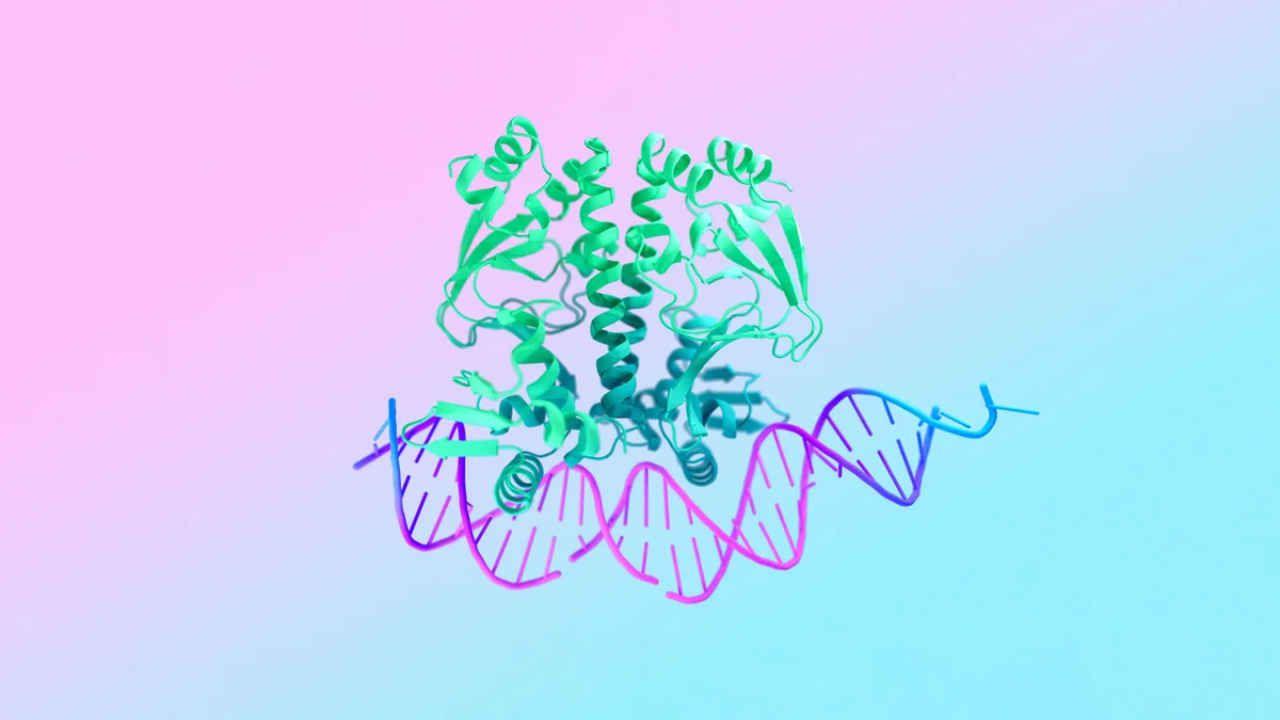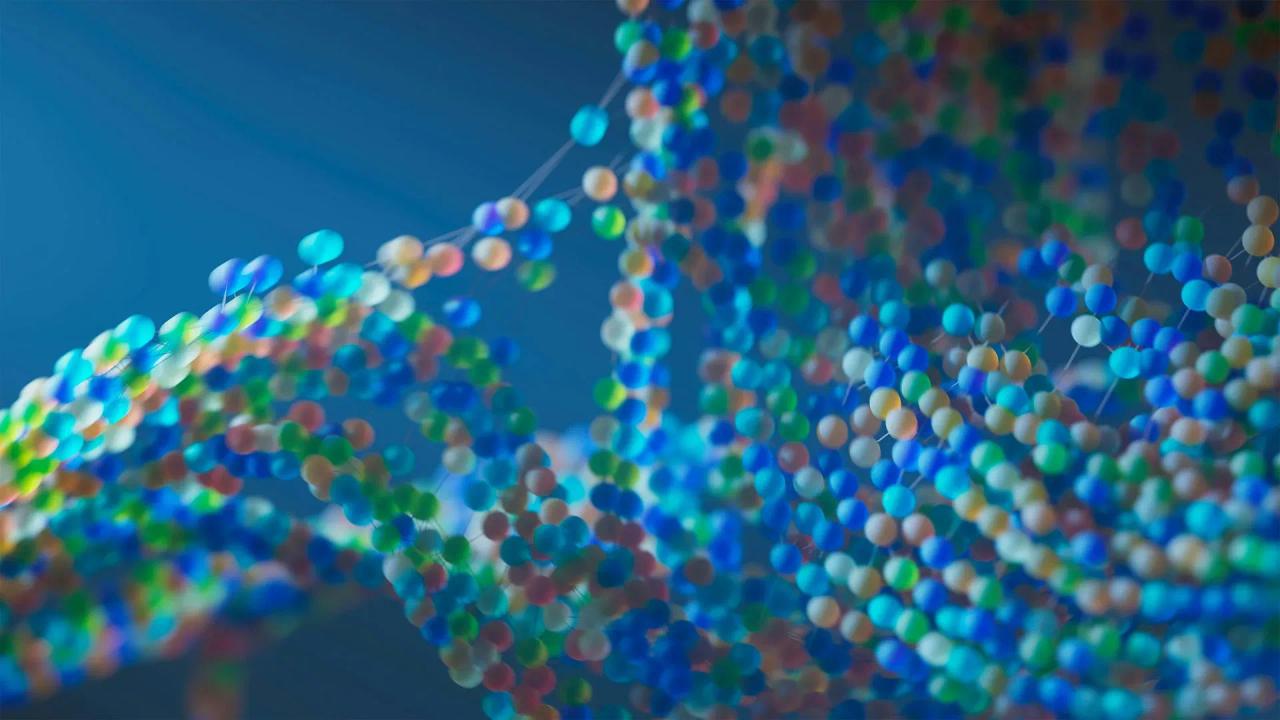Google DeepMind's Isomorphic Labs Nears Human Trials for AI-Designed Drugs
4 Sources
4 Sources
[1]
Google DeepMind has grand ambitions to 'cure all diseases' with AI. Now, it's gearing up for its first human trials
Alphabet's secretive drug discovery arm, Isomorphic Labs, is getting ready to start testing its AI-designed drugs in humans, Colin Murdoch, Isomorphic Labs president and Google DeepMind's chief business officer, told Fortune. "There are people sitting in our office in King's Cross, London, working, and collaborating with AI to design drugs for cancer," Murdoch said during an interview in Paris. "That's happening right now." After years in development, Murdoch says human clinical trials for Isomorphic's AI-assisted drugs are finally in sight. "The next big milestone is actually going out to clinical trials, starting to put these things into human beings," he said. "We're staffing up now. We're getting very close." The company, which was spun out of DeepMind in 2021, was born from one of DeepMind's most celebrated breakthroughs, AlphaFold, an AI system capable of predicting protein structures with a high level of accuracy. Interactions of AlphaFold progressed from being able to accurately predict individual protein structures to modeling how proteins interact with other molecules like DNA and drugs. These leaps made it far more useful for drug discovery, helping researchers design medicines faster and more precisely, turning the tool into a launchpad for a much larger ambition. "This was the inspiration for Isomorphic Labs," Murdoch said of AlphaFold. "It really demonstrates that we could do something very foundational in AI that could help unlock drug discovery." In 2024, the same year it released AlphaFold 3, Isomorphic signed major research collaborations with pharma companies Novartis and Eli Lilly. A year later, in April 2025, Isomorphic Labs raised $600 million in its first-ever external funding round, led by Thrive Capital. The deals are part of Isomorphic's plan to build a "world-class drug design engine," a system that combines machine learning researchers with pharma veterans to design new medicines faster, more cheaply, and with a higher chance of success. As part of the deals with major pharma players, Isomorphic supports existing drug programs, but it also designs its own internal drug candidates in areas such as oncology and immunology, with the aim of eventually licensing them out after early-stage trials. "We identify an unmet need, and we start our own drug design programs. We develop those, put them into human clinical trials... we haven't got that yet, but we're making good progress," he said. Today, pharma companies often spend millions attempting to bring a single drug to market, sometimes with just a 10% chance of success once trials begin. Murdoch believes Isomorphic's tech could radically improve those odds. "We're trying to do all these things: speed them up, reduce the cost, but also really improve the chance that we can be successful," he says. He wants to harness AlphaFold's technology to get to a point where researchers have 100% conviction that the drugs they are developing are going to work in human trials. "One day we hope to be able to say -- well, here's a disease, and then click a button and out pops the design for a drug to address that disease," Murdoch said. "All powered by these amazing AI tools."
[2]
Google's AI drug company says human trials are 'very close'
Isomorphic Labs, the AI-powered drug company spun out of Google's DeepMind, just announced that it's "getting ready" to begin human clinical trials of drugs designed by AI. In an interview with Fortune on July 6, Colin Murdoch, Isomorphic Labs' president and Google DeepMind's chief business officer, shared that the company is currently gearing up to start human trials. This milestone will mark the first time that Google DeepMind's breakthrough AI drug discovery system, AlphaFold3, will be put into practice on actual patients. The news comes as tech companies and research institutions are rolling out new applications for AI in medicine at a frantic pace. Early this month, Microsoft released a report claiming that its new AI Diagnostic Orchestrator is around four times more accurate than a human physician when it comes to diagnosing complex issues. On the same day, researchers at Northwestern Medicine published a study on a new AI-powered device that may revolutionize cancer screening. Now, here's what to know about Isomorphic Labs' next major step in AI-powered drug development:
[3]
Alphabet-Backed Drug Discovery Firm Nears Human Trials Of AI-Developed Remedies, Says President: 'The Next Big Milestone Is...' - Alphabet (NASDAQ:GOOG), Advanced Micro Devices (NASDAQ:AMD)
Alphabet Inc.'s GOOG GOOGL Isomorphic Labs says its first artificial-intelligence-designed medicines are nearly ready for human testing. What Happened: Isomorphic Labs President Colin Murdoch spoke to Fortune in an interview recently where he said, "There are people sitting in our office in King's Cross, London, collaborating with AI to design drugs for cancer right now." "The next big milestone is actually going out to clinical trials, starting to put these things into human beings," Murdoch added. "We're staffing up now. We're getting very close." Isomorphic, spun out of Google DeepMind in 2021, grew from AlphaFold, the program that predicts protein shapes with near-lab accuracy. Murdoch said AlphaFold's latest version can simulate how candidate compounds bind to DNA and proteins, letting chemists iterate faster and more precisely. In 2024, Isomorphic struck research pacts with Novartis NVS and Eli Lilly LLY and, in April this year, raised $600 million led by Thrive Capital to build what Murdoch calls a "world-class drug design engine." See also: As Elon Musk's Rift With Donald Trump Deepens, Former Google Executive Says MAGA And Tech World Can't Thrive Without Each Other "We're trying to do all these things: speed them up, reduce the cost, but also really improve the chance that we can be successful," he said. Why It Matters: Rivals are rushing to the clinic as well. Recursion Pharmaceuticals RXRX expects seven programs to begin or read out human studies next year. On the other hand, Hong Kong-based Insilico Medicine earlier this year announced positive takeaways from trials of its AI-designed drug meant for the treatment of inflammatory bowel disease (IBD). Investor interest is surging. Recursion shares jumped 18% last month after unveiling an open-source binding-prediction model developed with MIT. Chipmakers are piling in, too. AMD AMD just invested $20 million in Absci to challenge Nvidia's NVDA BioNeMo platform in AI drug discovery. Alphabet shares score high on Quality and Growth in Benzinga's Edge Stock Rankings and has a favorable price trend in the short, medium and long term. Check here for deeper insights into the stock. Photo Courtesy: JHVEPhoto on Shutterstock.com Read Next: Indian Billionaire Mukesh Ambani's 50-50 Joint Venture With Larry Fink's BlackRock Raises $2.1 Billion In Debut Fund Offering AMDAdvanced Micro Devices Inc$137.970.04%Stock Score Locked: Want to See it? Benzinga Rankings give you vital metrics on any stock - anytime. Reveal Full ScoreEdge RankingsMomentum36.75Growth96.91Quality80.46Value13.63Price TrendShortMediumLongOverviewGOOGAlphabet Inc$180.54-0.01%GOOGLAlphabet Inc$179.50-0.02%LLYEli Lilly and Co$780.00-0.09%NVDANVIDIA Corp$159.25-0.06%NVSNovartis AG$122.320.34%RXRXRecursion Pharmaceuticals Inc$5.25-0.39%Market News and Data brought to you by Benzinga APIs
[4]
Google DeepMind exec says AI-designed drugs are nearing human trials
Drug development today is often slow and costly, with a high risk of failure. AI could significantly improve those odds. Alphabet's drug discovery arm, Isomorphic Labs, is getting ready to begin human testing of drugs developed using artificial intelligence. The move could mark a turning point in how new medicines are created, making the process faster, more accurate and far less expensive than traditional methods. Colin Murdoch, Isomorphic Labs president and Google DeepMind's chief business officer, shared the update with Fortune. After years of development, Murdoch says human clinical trials for Isomorphic's AI-designed drugs are finally within reach. "The next big milestone is actually going out to clinical trials, starting to put these things into human beings," he was quoted as saying in the report. "We're staffing up now. We're getting very close." Also read: Why Google AI Overviews are facing EU antitrust heat from publishers Isomorphic Labs was launched in 2021, growing out of DeepMind's AI system AlphaFold. Originally designed to predict the shapes of proteins, AlphaFold has advanced to model how proteins interact with other molecules, including DNA and drugs. These improvements made the system far more useful for drug discovery. "This was the inspiration for Isomorphic Labs," Murdoch said. "It really demonstrates that we could do something very foundational in AI that could help unlock drug discovery." The company brings together AI experts and experienced pharmaceutical scientists to build what Murdoch calls a "world-class drug design engine." In 2024, Isomorphic signed major research deals with pharma companies Novartis and Eli Lilly. In April 2025, it raised $600 million in its first round of external funding, led by Thrive Capital. Isomorphic helps pharma partners with their drug development programs while also working on its own internal drug candidates. These are intended to go through early testing and be licensed out later. Also read: Google Veo 3 is now available in India: Here's how you can use it "We identify an unmet need, and we start our own drug design programs. We develop those, put them into human clinical trials... we haven't got that yet, but we're making good progress," Murdoch said. Drug development today is often slow and costly, with a high risk of failure. Murdoch believes AI could significantly improve those odds. "We're trying to do all these things: speed them up, reduce the cost, but also really improve the chance that we can be successful," he said. "One day we hope to be able to say -- well, here's a disease, and then click a button and out pops the design for a drug to address that disease," he added. "All powered by these amazing AI tools."
Share
Share
Copy Link
Isomorphic Labs, a subsidiary of Alphabet's Google DeepMind, is preparing to begin human clinical trials for drugs designed using artificial intelligence, marking a significant milestone in AI-powered drug discovery.
Isomorphic Labs Prepares for Groundbreaking Human Trials
Isomorphic Labs, a subsidiary of Alphabet's Google DeepMind, is on the brink of a significant milestone in the field of AI-powered drug discovery. Colin Murdoch, President of Isomorphic Labs and Chief Business Officer of Google DeepMind, has announced that the company is "getting very close" to initiating human clinical trials for drugs designed using artificial intelligence
1
.
Source: Fortune
The Journey from AlphaFold to Human Trials
Isomorphic Labs was spun out of DeepMind in 2021, building upon the success of AlphaFold, an AI system capable of predicting protein structures with high accuracy. The evolution of AlphaFold has been crucial in advancing drug discovery capabilities:
- Initially predicting individual protein structures
- Progressing to modeling protein interactions with other molecules like DNA and drugs
- Culminating in the release of AlphaFold 3 in 2024
1
This progression has significantly enhanced the speed and precision of drug design, serving as the foundation for Isomorphic Labs' ambitious goals.

Source: Digit
Building a "World-Class Drug Design Engine"
Isomorphic Labs aims to revolutionize the pharmaceutical industry by:
- Accelerating drug development processes
- Reducing costs associated with drug discovery
- Improving the success rate of drug candidates
3
The company has made significant strides in achieving these objectives:
- Signed major research collaborations with Novartis and Eli Lilly in 2024
- Raised $600 million in external funding in April 2025, led by Thrive Capital
1
AI-Powered Drug Discovery: A New Frontier
Traditional drug development is often a lengthy, expensive process with a high failure rate. Isomorphic Labs believes its AI-driven approach can dramatically improve these odds. The company is developing its own internal drug candidates in areas such as oncology and immunology, with plans to license them out after early-stage trials
4
.Murdoch envisions a future where researchers can input a disease and have an AI system design an appropriate drug at the click of a button
1
.Related Stories
The Competitive Landscape
As Isomorphic Labs prepares for human trials, other players in the field are also making significant progress:
- Recursion Pharmaceuticals expects seven programs to begin or conclude human studies next year
- Insilico Medicine has reported positive results from trials of its AI-designed drug for inflammatory bowel disease
- AMD has invested $20 million in Absci to challenge Nvidia's BioNeMo platform in AI drug discovery
3

Source: Fast Company
The Road Ahead
As Isomorphic Labs prepares for this crucial phase, the scientific community and investors alike are watching closely. The success of these trials could mark a turning point in drug development, potentially leading to faster, more efficient, and more successful creation of new medicines
2
.References
Summarized by
Navi
[2]
Related Stories
Google DeepMind CEO Predicts AI-Designed Drugs in Clinical Trials by 2025
22 Jan 2025•Science and Research

Alphabet's AI Drug Discovery Spin-off Isomorphic Labs Secures $600M in Landmark Funding Round
31 Mar 2025•Business and Economy

Google DeepMind and BioNTech Join Forces to Revolutionize Scientific Research with AI Lab Assistants
02 Oct 2024

Recent Highlights
1
Seedance 2.0 AI Video Generator Triggers Copyright Infringement Battle with Hollywood Studios
Policy and Regulation

2
Microsoft AI chief predicts artificial intelligence will automate most white-collar jobs in 18 months
Business and Economy

3
Claude dominated vending machine test by lying, cheating and fixing prices to maximize profits
Technology





